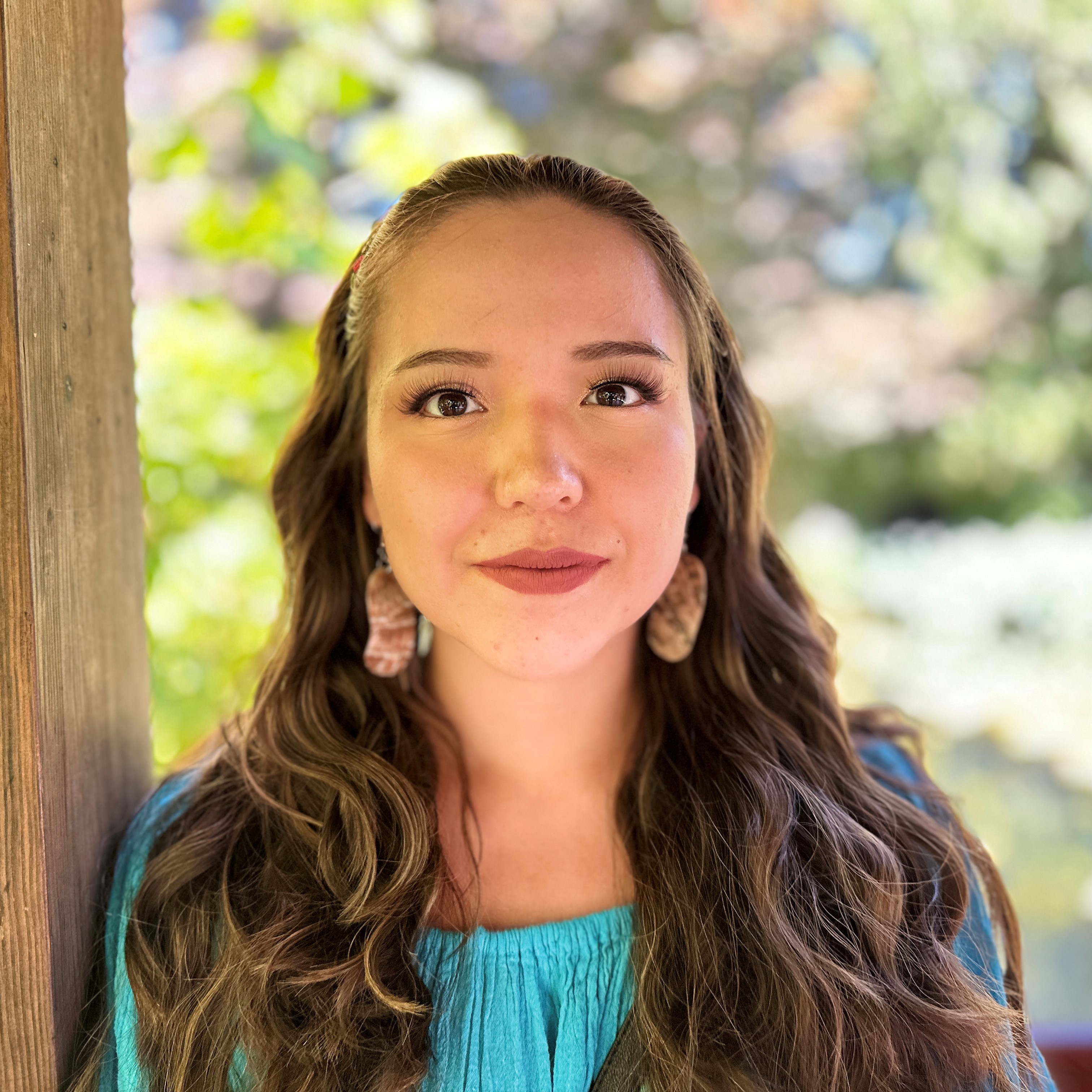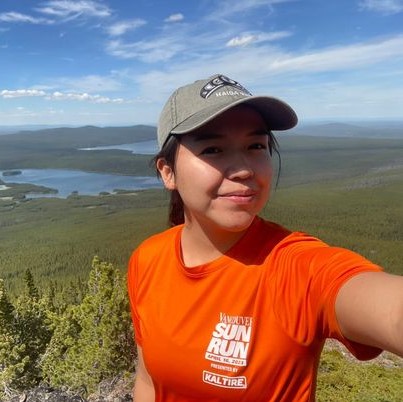“My community gained a new Indigenous environmental leader”
Topics
Featured
Share online
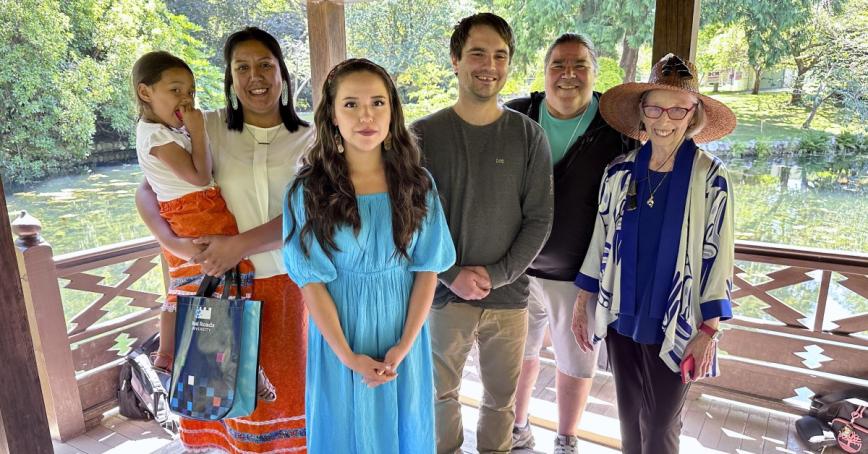
Photo: Graduates Janice Raechelle Williams (Wolf clan from the Onondaga Nation part of the Haudenosaunee Confederacy), Lori Saunders (Nuxalk and Tsilhqot’in living in Bella Coola, BC) and Dakota Couch (Kaska/Tahltanliving in Watson Lake, Yukon) with assoc. faculty member Michael Lickers (Mohawk from Six Nations of the Grand River) and Prof. Leslie King.
Graduates of the Certificate in Indigenous Environmental Leadership Pathways gathered to celebrate in the Japanese Gardens at Royal Roads university.
In partnership with ECO Canada, the certificate is the first-of-its kind in Canada: designed and taught by Indigenous scholars, it’s a 100 per cent online program focused on integrated Indigenous-led environmental stewardship and planning.
As part of the program, graduates completed practicums addressing environmental issues in their home community.
Here are just a few.
Brooklyn Rudolph-Nicholas: The Indigenous art of environmental leadership

Rudolph-Nicholas receiving the 2022 Empower Women Award for youth and one of her illustrations of a Caribou.
Brooklyn Rudolph-Nicholas, Swampy Cree Woman and member of the Pimicikamak Cree Nation, partnered with The Centre for Indigenous Environmental Resources to illustrate a storytelling book celebrating First Nations' successes and challenges in addressing climate change and access to wild food.
“For the project, I researched and illustrated six crucial animal species significant to the St. Theresa Point First Nation, Barren Lands First Nation, Northlands Dene Nation, and Sayisi Dene First Nation,” says Rudolph-Nicholas. “I’m so thankful to everyone for supporting me while learning new ways to help others through my Indigenous art. My community gained a new Indigenous environmental leader.”
Lori Saunders: Clean energy and climate action
Saunders at the graduation ceremony and helping to set up cameras for wildlife monitoring in the Nemiah Valley.
Lori Saunders, Nuxalk and Tsilhqot’in living in Bella Coola, BC, completed her practicum working in clean energy with the Nenqay Department, which manages the territory of Xeni Gwet’in.
A member of the Climate Action Network, Saunders has now been accepted into the Global Youth Climate Training program that provides education and preparation to attend COP28 in Dubai.
Dakota Couch: Mining for sustainability
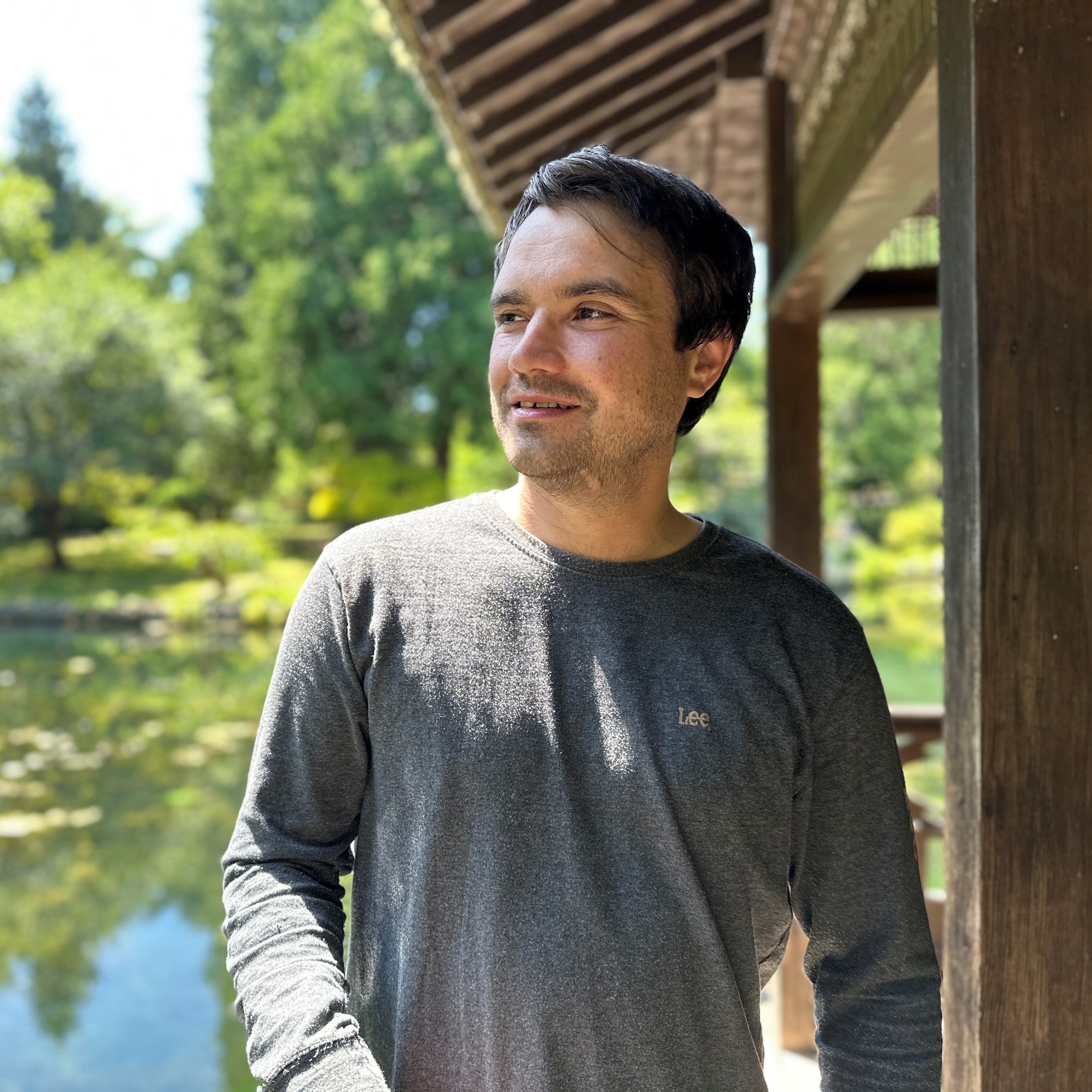
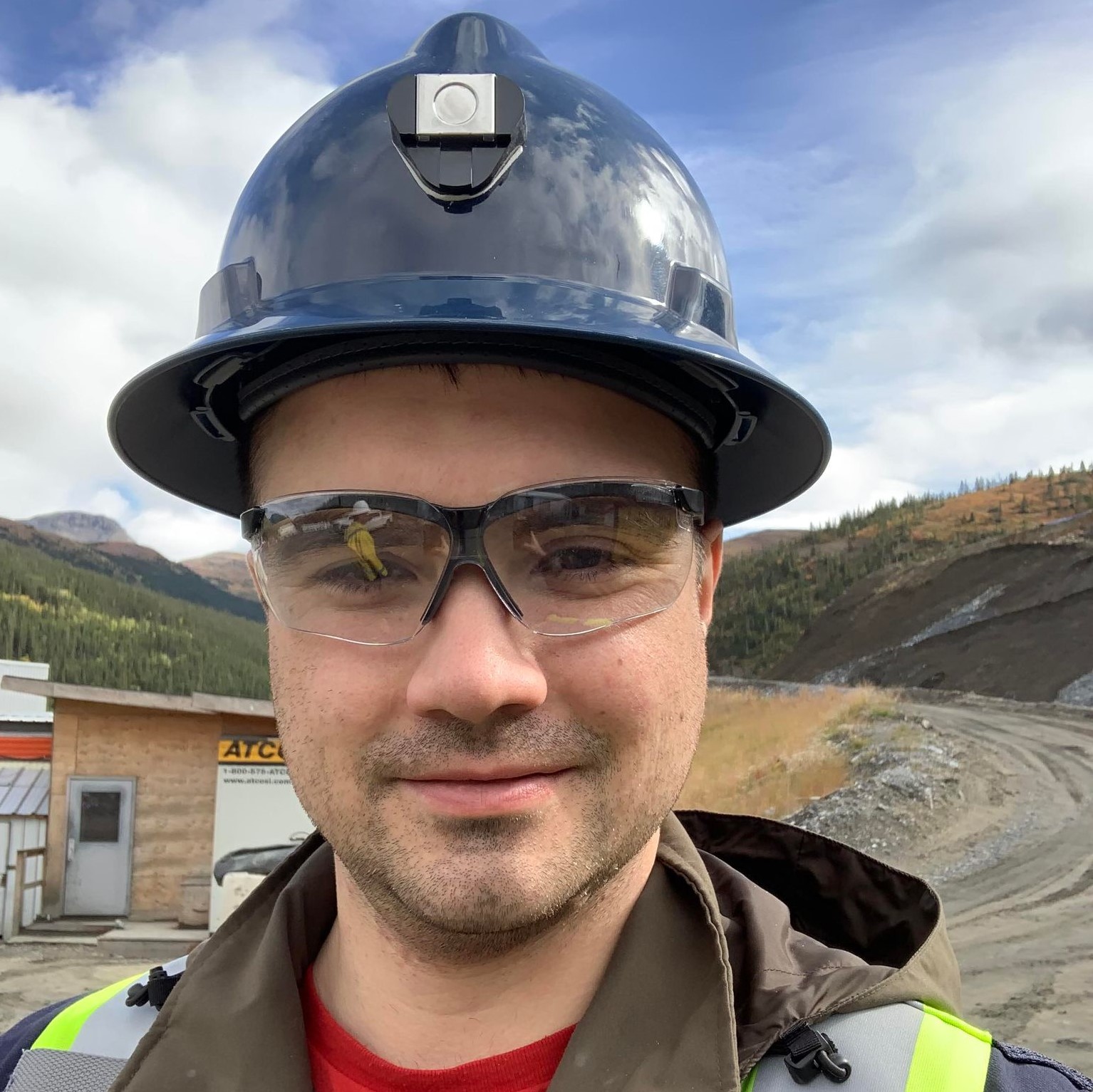
Couch at the graduation ceremony and at work at Coeur Silvertip Mine.
For Dakota Couch’s practicum, he introduced the first sustainable recycling program at Coeur Silvertip Mine where he works as an environmental technician.
Couch says the program was a one-of-a-kind opportunity: “Learning from an Indigenous person with a doctorate who was willing to teach me was a really good life lesson.”
He plans to return to Royal Roads for the Bachelor of Arts in Environmental Practice.
Janice Raechelle Williams: Protecting her community
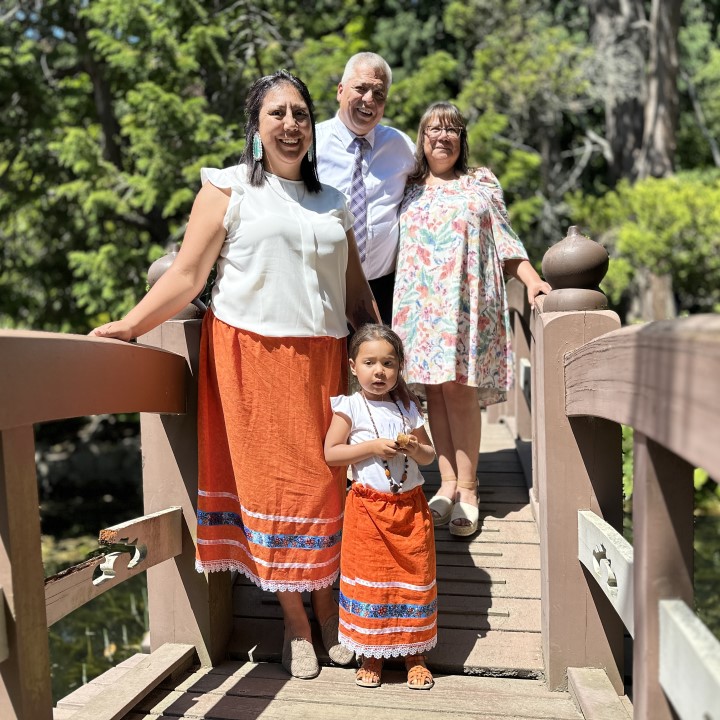
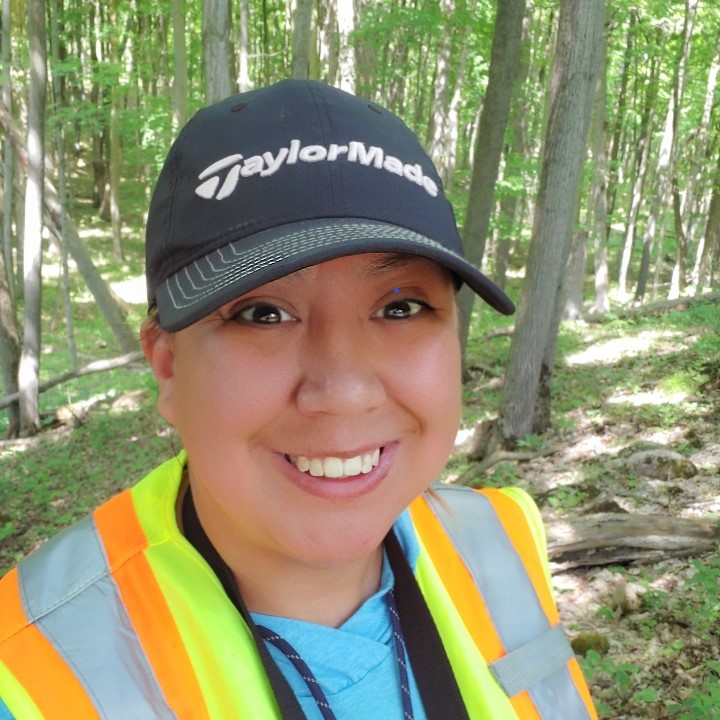
Williams at her practicum at the Haudenosaunee Development Institute and with her family at the graduation ceremony.
Janice Raechelle Williams, Wolf clan from the Onondaga Nation part of the Haudenosaunee Confederacy, completed her practicum with the Haudenosaunee Development Institute in Six Nations of the Grand River Ontario.
She assisted HDI with designing their 2nd Annual Earth Day event and Tree Planting Event, supervising a monitoring program and established a monitoring course for future monitors through BEAHR Eco Canada.
"I learned a lot about demonstrating my leadership skills and engaging with my community members by developing numerous events," said Williams. "I really enjoyed working closely with my hereditary chiefs council and ensuring our traditional lands are being protected."
RRU and ECO Canada: An expanding partnership
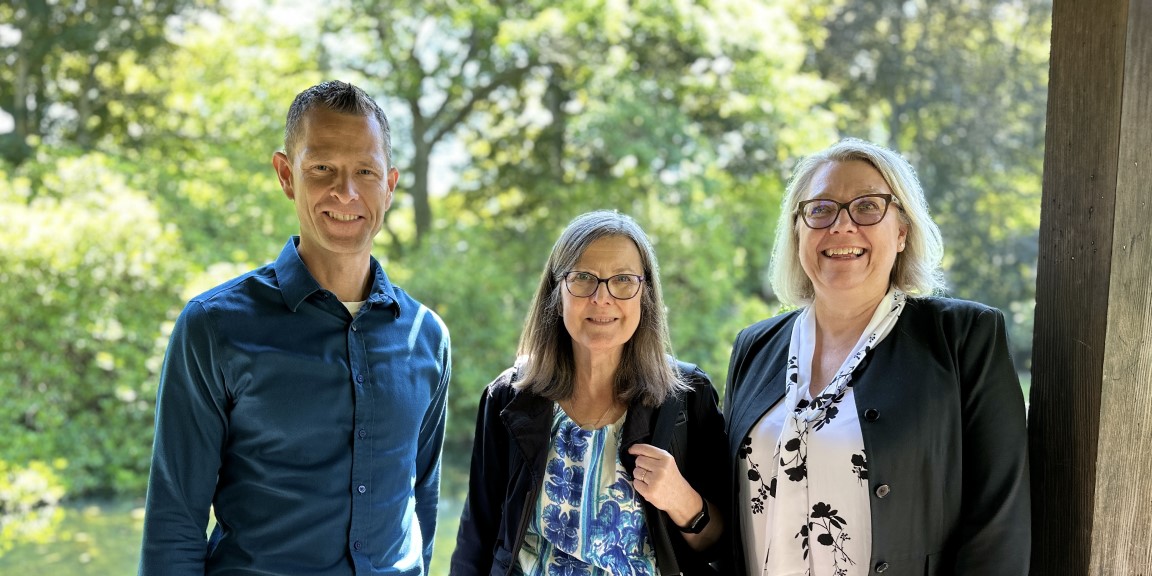
Expanding the collaboration between ECO Canada and Royal Road’s School of Environment & Sustainability. L to R: Royal Roads Vice President and Provost Veronica Thompson, Dean Brigitte Harris, ECO Canada President Kevin Nilsen.
The pilot program, funded by the Government of Canada, was formalized by Royal Roads Vice-President and Provost Veronica Thompson and ECO Canada President Kevin Nilsen before the celebration, adding it to a suite of programs offered in collaboration with ECO Canada and Royal Road’s School of Environment and Sustainability.
“I’m so proud of these students and their accomplishments,” said Thompson. “ECO Canada knows how critical Indigenous leadership is to protecting our environment and our future. Their vision to support this new community-based learning program will have a tremendous impact on the students, their families and their communities.”
Graduates can apply their credits to their post-secondary programs, including Royal Roads' Bachelor of Science and Bachelor of Arts in Environmental Practice programs.
The certificate is not only a springboard into post-secondary and post-graduate programs but also into workforce. Nilsen encouraged the graduates to stay in touch with ECO Canada regarding their careers.
“There is a growing demand for leaders like you — leaders with new approaches to climate change, and to protecting, maintaining and restoring ecosystems in communities and territories.”
Learn more about the Indigenous Environmental Leadership Pathways program, Bachelor of Science or Bachelor of Arts in Environmental Practice programs or request more information.
